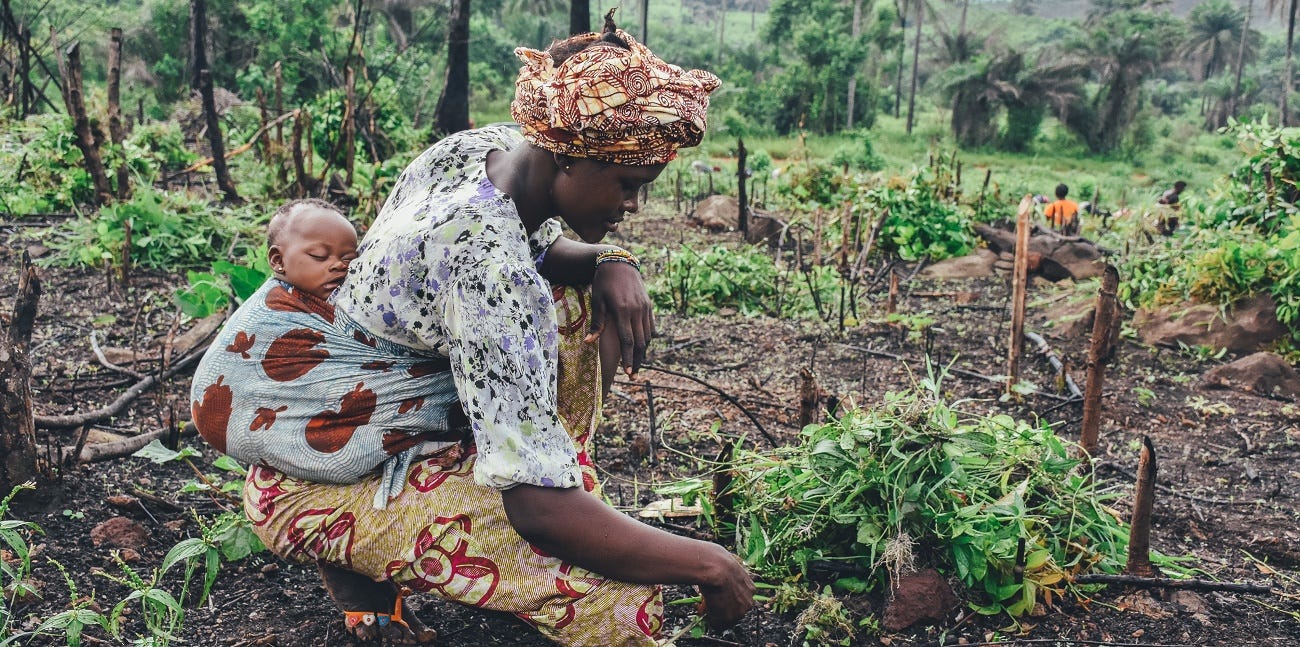Collaboration, trust and urgency — the three things we need to tackle global challenges

Effective collaboration is key to tackling the ‘grand challenges’ we face before time runs out.
According to Tim Benton, Professor of Population Ecology at Leeds and Chatham House Research Director on the topic of Emerging Risks, shifting our thinking to a systems approach is critical for our success.
Climate change, food security, social stability, economic development — these are existential issues for the planet and finding solutions to them is ever more urgent. While it may seem obvious that no one sector can solve these challenges alone — whether academia, governments, civil society or industry — the move towards practical and effective collaboration is, says Professor Benton, far too slow.
The way we collaborate now isn’t working
As former Champion for the UK’s Global Food Security Programme — which brought together the Research Councils, executive agencies and Government departments to support research — it’s not surprising that Professor Benton chooses the interplay between food production and climate change to illustrate his point:
“The standard rhetoric is that, as the world’s population grows, we need more land to produce more food, and that might require more water than is possible to imagine. But in terms of climate change, we also need to use land to grow fuel crops and then capture the CO2 when these crops are burned, to pull CO2 out of the atmosphere. At the same time, we’re losing land through sea level rise and increasing urbanisation.
“Our typical sector-based response to these challenges creates incompatible demands — the drive for more food challenges action on climate and vice versa. What tends to happen is that each side pushes their own ‘solution’, creating paralysis. But doing nothing is still doing the wrong thing — because we have so little time left to act.”
How can we do things differently?
For Professor Benton, real collaboration between all these parties should be focused on finding the sweet spots where most benefits can be gained. Because relationships between different stakeholders are increasingly complex and often involve conflicting goals, there is a great need for new thinking, systems approaches, new understanding of how to navigate trade-offs, and inspiration of how to change complex systems in ways that create net positive outcomes. This applies in the policy sphere, but also in the sphere of markets and more broadly for citizens too.
He explains:
“Our response to people starving has been to produce more food — but the result has been that we have become very efficient at producing enormous amounts of calories from just a few crops. Food is now cheap and we waste a large proportion of it. At the same time, over half of the world’s population is not a healthy weight, and there are more obese people than underweight people.
“So perhaps, instead of producing more food, we need to recognise the real costs of production on health and the environment and bring actors across the scope of the food system together to change what we grow, and how we grow it, reduce waste and encourage healthier food choices. Such a shift will also release more land to mitigate climate change.”
Such an approach by its very nature would require new government policy, informed by academic research, to enable changes to market mechanisms and business practice — necessitating collaboration between these different actors.

The Paris Agreement has prompted global action
But it’s no good academics coming up with bright ideas and then persuading someone to adopt them, says Professor Benton. This simply doesn’t work as the process is much too slow. Take up of new solutions can only be ensured where research is jointly designed and carried out with all the other players — be that governments, civil society, or industry.
Researchers are pushing against an open door in this respect, with both governments and businesses keen to work with academia to tackle these issues.
According to Professor Benton, the Paris Agreement is stimulating the kinds of global collaborative effort we desperately need to tackle the big challenges before the clock runs out.
Enacted in 2016, the historic agreement needs actors from every nation on the planet to collectively incentivise emissions reductions over the next decade.
Countries are making “zero net carbon goals” requiring cross-sectoral change, companies and cities are developing Paris-compliant strategies, and individual citizens are changing the way markets work by signalling their willingness to change.
“The Paris Agreement’s requirements are getting governments to think critically — and in systems’-based ways — about how to feasibly achieve zero-net carbon economies, including the need to move towards healthier diets produced in ways that minimise impacts on climate and biodiversity. From these conversations, we’re seeing greater awareness that the challenges associated with health, climate, environment and development are all inter-related, emphasising the need for coordination and collaboration at all levels.”
Solutions must be co-created from the start
Over the last decade, there has been a huge step change in academia towards adopting both systems approaches and collaborative working between academic and decision-makers, Professor Benton admits, powered partly by the inclusion of impact metrics within the Research Excellence Framework. But his basic point still stands — the clock is ticking, so we need to be doing more of this, and faster.
One of the most positive aspects of how overseas development aid is delivered through the Global Challenges Research Fund (GCRF), says Professor Benton, is that the expectation of definite outcomes and impact means that the most successful projects include co-design and co-research with stakeholders.
This is the philosophy behind the Agricultural and Food-System Resilience: Increasing Capacity and Advising Policy (AFRICAP) programme, a £9 million Global Challenges Research Fund initiative led by Professor Benton.

Through partnerships with government stakeholders, agricultural organisations, and policy advocacy institutions, GCRF-AFRICAP is working to make agriculture and food systems more productive, sustainable and resilient to climate change in Malawi, South Africa, Tanzania and Zambia.
The programme involves co-developed research spanning across the food system from soils, plant and livestock science to meteorology, ecology, political and social sciences, producing a comprehensive evidence base to help countries reduce poverty and hunger whilst addressing the broader aims of the UN’s Sustainable Development Goals.
These kinds of collaborations have to be based on relationships of mutual trust and respect, which take time to build. Projects funded through the GCRF at the University of Leeds, for example, draw on relationships first built with the development of Africa College in 2008, which was a cross-campus and international research partnership working to enhance food security in sub-Saharan Africa.
“There is a fantastic breadth and depth of research at Leeds, which we can draw on to deploy interdisciplinary expertise in response to these grand challenges,” says Professor Benton. “This was our approach when we developed GCRF-AFRICAP- enabling research to be co-designed with multiple stakeholders, using a systems-based approach.
“Beyond the challenge of food and climate, we have worked hard over the last years to develop an inter-disciplinary and collaborative culture. It’s a capability that’s recognised by many in industry and government, who come to us for advice on some of these same issues.
“This enables us to move forward faster within our research and in implementation. With the scale of the world’s problems, that sense of urgency is only growing.”
Further information
For images, interviews and further details, contact pressoffice@leeds.ac.uk




